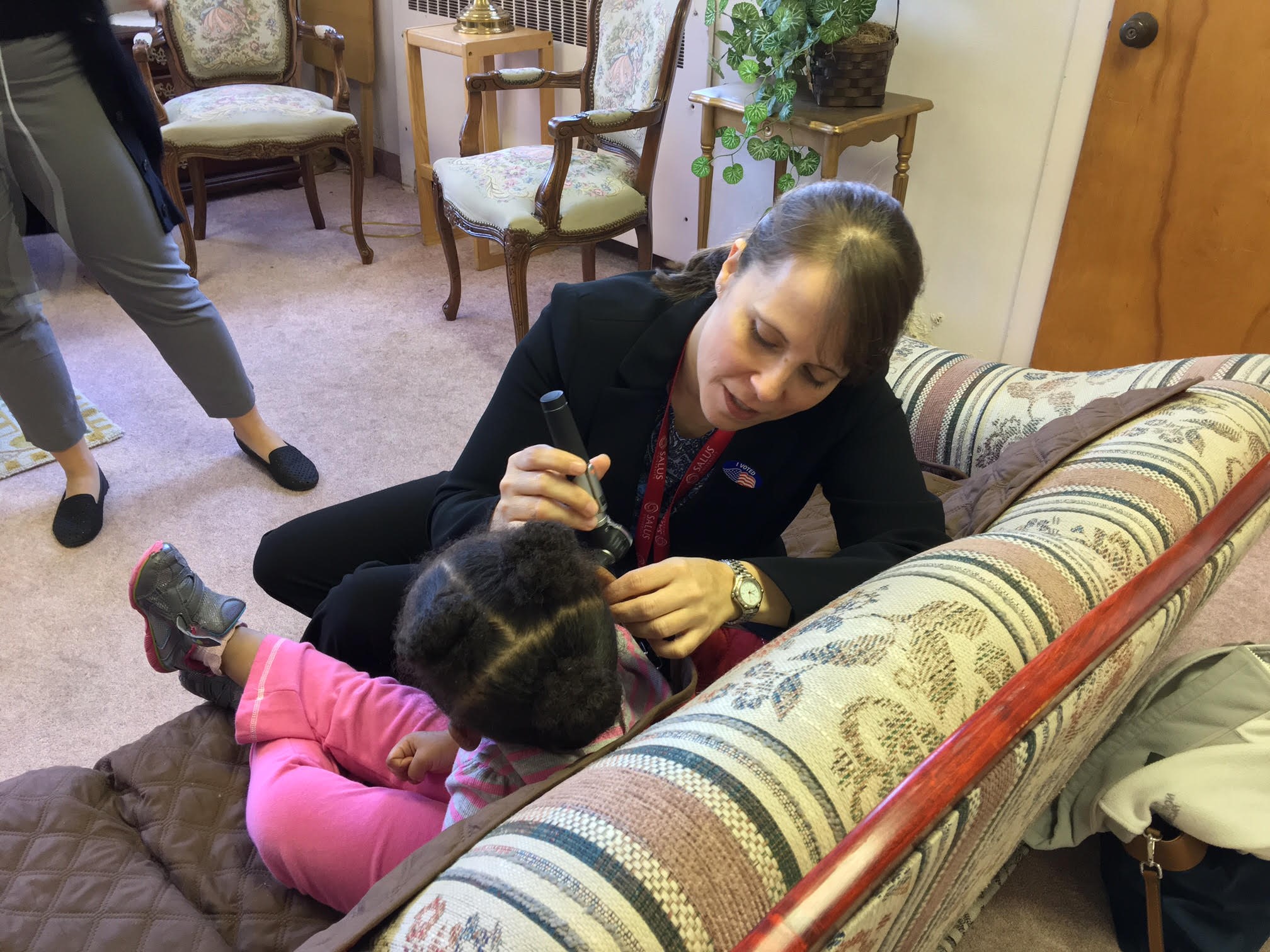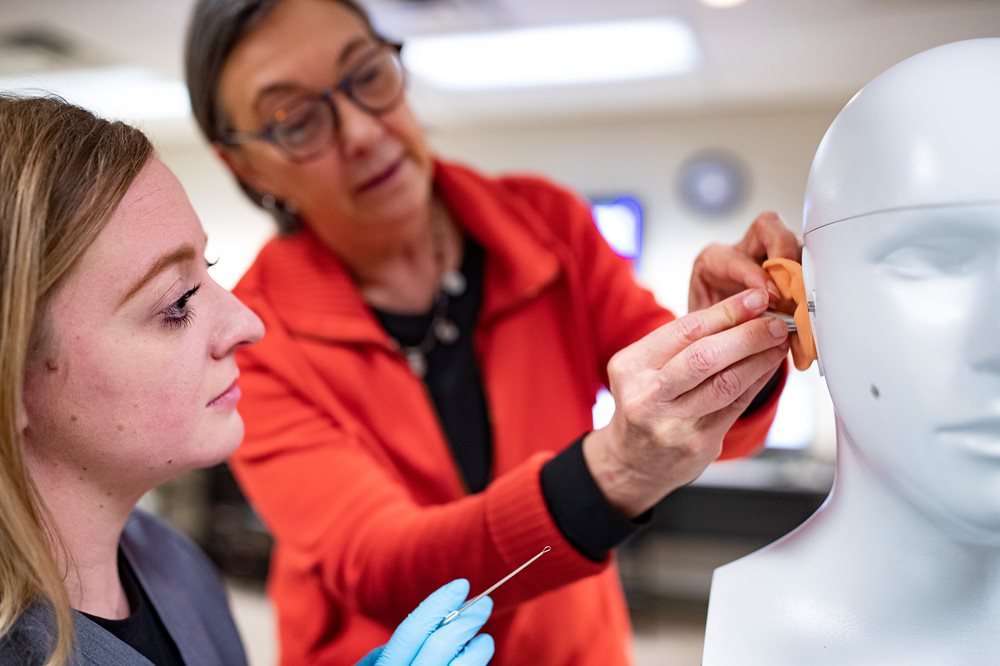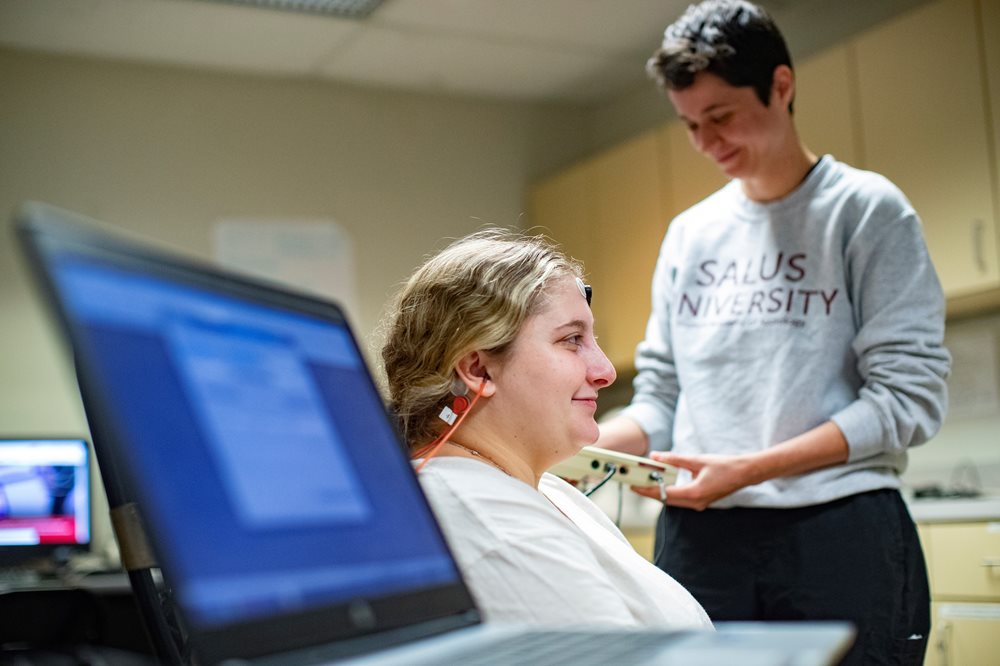Listen to Good Advice During Better Hearing and Speech Month
May is Better Hearing and Speech Month (BHSM), which means it’s the perfect time to prioritize your hearing health. The theme for this year is “Building a Strong Foundation.”
According to Lindsay Bondurant, PhD, director of the Pennsylvania Ear Institute (PEI) at Salus University, if you've noticed trouble understanding speech in noisy situations or difficulty following conversations in quiet, it could be a sign of hearing loss.
 "Often the concerns are expressed by friends and family members who've become frustrated with frequent misunderstandings,” said Dr. Bondurant. “If you're experiencing any difficulty hearing or understanding speech, it's important to have your hearing checked as soon as possible.”
"Often the concerns are expressed by friends and family members who've become frustrated with frequent misunderstandings,” said Dr. Bondurant. “If you're experiencing any difficulty hearing or understanding speech, it's important to have your hearing checked as soon as possible.”
At PEI, a state-of-the-art hearing facility, comprehensive hearing evaluations are offered to assess hearing abilities and identify any potential hearing loss. Experienced audiologists use advanced technology to provide accurate results and personalized recommendations for the patient’s hearing needs.
As for adults, hearing loss remains one of the most common chronic health conditions – and while many adults think hearing loss is simply a factor of getting older, it can be much more. Hearing loss can affect every area of a person’s life, including physical health, mental health, career success, social life, personal relationships, and overall quality of life.
 It’s also important to be aware of how to protect your hearing. People often voluntarily expose themselves to loud sounds through headphones or through the stereo systems in concerts, nightclubs, sporting events, and even fitness classes. The good news is that people can take steps to protect their ears, including:
It’s also important to be aware of how to protect your hearing. People often voluntarily expose themselves to loud sounds through headphones or through the stereo systems in concerts, nightclubs, sporting events, and even fitness classes. The good news is that people can take steps to protect their ears, including:
- Protect your hearing when shooting a firearm. Those using firearms for recreational purpose would benefit from learning about their safe use, which includes but is not limited to use of hearing protection.
- Is the noise too loud? If you need to shout to make yourself heard, then yes. And, you need hearing protection such as earplugs or noise-cancelling earmuffs.
- Do not listen to headphones for a long time. Turn the volume down and take periodic breaks from the noise.
For children, it’s important for parents to be able to identify the signs of hearing loss, which may include the following:
- A lack of attention to sounds (birth to one year).
- Not responding when you call his/her name (seven months to one year).
- Not following simple directions (one to two years).
- Delays in speech and language development (birth to three years).
- Pulling or scratching at his/her ears.
- Difficulty achieving academically, especially in reading and math.
- Social isolation or unhappiness at school.
 “Signs of hearing loss in children can be very subtle, and hearing may not become a concern until a child has already fallen behind,” said Dr. Bondurant. She recommends parents watch out for signs of hearing loss such as those listed above.
“Signs of hearing loss in children can be very subtle, and hearing may not become a concern until a child has already fallen behind,” said Dr. Bondurant. She recommends parents watch out for signs of hearing loss such as those listed above.
“If you notice any of these signs or have concerns about your child's hearing, don't wait to seek help,” she said. “Early detection of hearing loss can prevent delays in speech and language development and improve academic and social outcomes.”
Pediatric audiologists at the Pennsylvania Ear Institute are qualified to assess a child's hearing abilities at any age and identify any potential hearing loss and use advanced technology to do so. Call 215.780.3180 or click here to make an appointment.